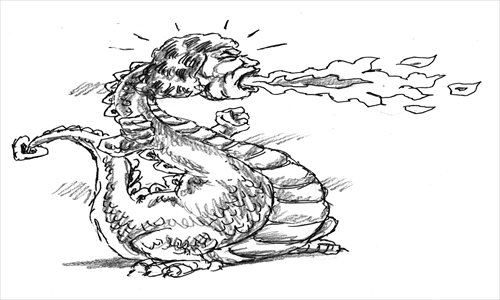Job inheritance breeds seeds of social instability

Shi Yanfei of Central China's Hunan Province retired three years ago at the young age of 45 in exchange for job opportunities for her twin daughters in a local water plant, where she had worked for decades.
But it turned out that only one of her daughters was offered a job at the water plant. Outraged at the result, Shi brought a bottle filled with petrol to the plant on August 27, broke into a meeting room, and set company officials on fire, killing three and injuring four. Shi jumped out of a sixth-floor window and later died in the hospital.
Who or what is to blame for such an atrocity? People may point to the false promise of jobs, the lack of employment opportunities, or the tough competition that job seekers face. After all, at the heart of this tragedy is a life-and-death battle for employment.
But a closer look at the incident will yield a focus on an outdated practice still in use at this particular State-owned water plant.
An internal company document says the plant grants job opportunities to children of its employees who agree to retire early, at the age of 50 if male or 45 if female.
Such a policy was popular in the 1980s to help State-owned enterprises buffer the shocks of the economic reform, which was then in its initial stages.
However, the practice of offering job opportunities to the children of company employees was largely abandoned as reform deepened and the market continued to grow in the 1990s.
Therefore, many people were startled when the news of the water plant incident broke out. The public was shocked by not only the nature of the incident - a suicide attack against company managers - but also the fact that the job inheritance system still exists in some hidden corners of today's China.
In a sense, the tragedy is not really about the lack of jobs, but the lack of fairness, even in State-owned firms. Rumor has that the position in the water plant that was to go to Shi's other daughter was given to another person.
Today's China is much richer than it was decades ago. Although living standards have improved tremendously, many people say they are not happy with their lives.
Why? Many people point to the widely perceived lack of fairness in China. This may explain why some people actually celebrated the deadly strike against the officials at the water plant.
In this case, everyone is, more or less, culpable, including the disgruntled Shi, the managers, and, above all, the outdated inheritance practice.
There are many questions to be answered. Why does the job inheritance system remain alive? Has anyone spoken out against the practice? Is it legal, and how does it fit in China's market economy today?
While the answers to some of these questions are not yet clear, one thing that is certain is that a practice limiting opportunities to a privileged few creates more harm than good. For those who enjoy the privilege, there's no incentive to work hard or be creative. The company concerned also loses the opportunity to recruit the true talent it needs to enhance its competitiveness.
What's worse, the existence of such a system leaves thousands of young people confused, frustrated and resentful, thus planting the seeds of social instability.
The public is waiting for a thorough investigation into this arson case. But, whatever the results, the next move is certain: to further economic reform and to completely abandon the job inheritance system.
Jobs at similar State-owned firms or government departments must be made accessible to the public, and the hiring process needs to be open, fair and transparent.
Only when this is achieved, the next Shi Yanfei may be saved from going to extremes.
The author is a commentator on current affairs with China Radio International. opinion@globaltimes.com.cn